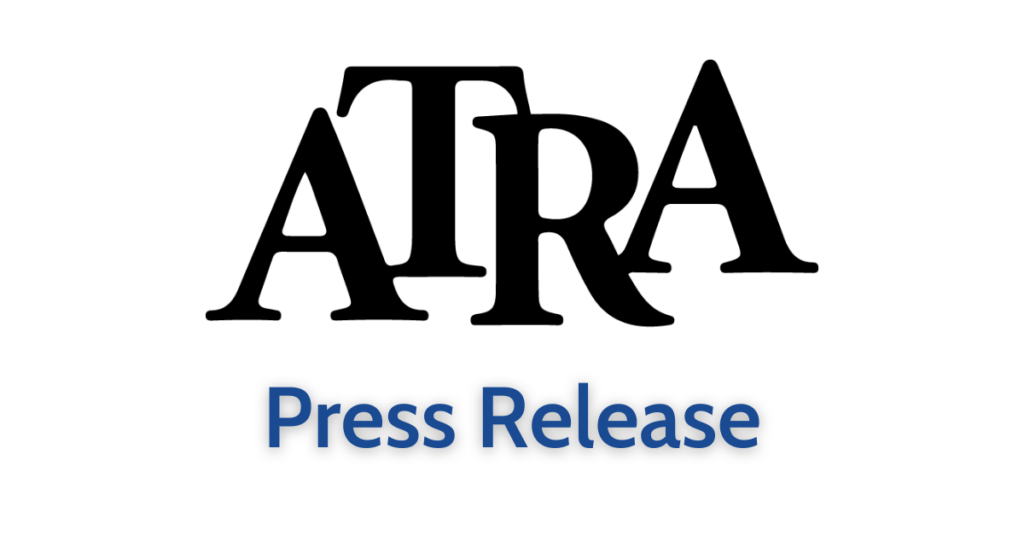
House Oversight Hearing on Third-Party Litigation Financing Applauded by ATRA
The lack of oversight and transparency around third-party litigation funding threatens the integrity of our legal system
The American Tort Reform Association (ATRA) applauds the House Committee on Oversight and Reform for taking a significant step in addressing lawsuit financing during its hearing today, “Unsuitable Litigation: Oversight of Third-Party Litigation Funding,” scheduled to begin at 10 a.m.
“We commend the House Committee on Oversight and Reform for taking the initiative to highlight the impact of third-party litigation financing on our civil justice system today,” ATRA President Tiger Joyce said. “Litigation financing has become a significant driving force behind mass tort litigation, and the lack of oversight and transparency around funding threatens the integrity of our legal system.”
Mass tort litigation has evolved into a multi-billion-dollar enterprise for plaintiffs’ lawyers, who frequently target manufacturers across various industries. Third-party litigation financing (TPLF) is one driver of the mass tort machine that has rapidly grown in recent years, posing unique implications for the fairness and efficiency of our civil justice system.
The role that third-party investors play in financing litigation is of particular concern given the potential to compromise lawyers’ independence when funders can influence litigation or settlement decisions. Undisclosed litigation financing arrangements can complicate the resolution of disputes and obscure conflicts of interest or unethical conduct.
TPLF not only funds litigation but can create it as well. Financing can cover upfront costs for advertising and other services to maximize the number of claims, flooding courts and overwhelming defendants. Courts, litigants, and the public are often unaware of these hidden financial arrangements, further challenging the fairness of the legal process.
As this practice has emerged, ATRA has advocated for transparency in TPLF agreements. Disclosure of such arrangements at the outset of litigation or upon entering a funding agreement would provide parties and courts with vital information to assess the influence of funders on the litigation.
“We appreciate the Committee’s willingness to address third-party litigation financing,” Joyce said. “We hope this spotlight will spur action to ensure transparency in third-party litigation financing agreements, thus safeguarding the fairness of our civil justice system.”
ATRA submitted a letter of testimony to the Committee citing further concerns and problems that have come from third-party litigation financing and also has published a detailed report outlining these concerns, “The Hidden Money Behind the Litigation: The Problematic Expansion of Third Party Litigation Funding.”
Latest News
View all news
Groups Urge Congressional Scrutiny of D.C. Attorney General’s Use of Private Attorneys
Concerns Mount Over Outside Counsel Contracts and Litigation Agendas
America’s $367 Billion Lawsuit Epidemic
The Hidden Tax Crushing Families and Businesses
$745 Million Verdict in Coastal Litigation Exemplifies Louisiana’s ‘Judicial Hellhole®’ Status
Excessive Litigation Costs Residents $1,011 Annually and Jeopardizes 40,000 Jobs Each Year
Alarming Expansion in Public Nuisance Litigation Revealed by ATRA Report
From Social Media to Car Thefts, New Litigation Trends Threaten Entire Industries
Georgia Legislature Passes Landmark Tort Reform Bill
ATRA Applauds Passage, Anticipates Governor’s Signature on SB 68
The trial lawyer playbook: How aggressive advertising and junk science are costing Californians
In 2024, legal services ads hit $164 million in LA, part of a 39% national rise, fueling aggressive marketing, third-party funding, and straining California’s economy and courts.



